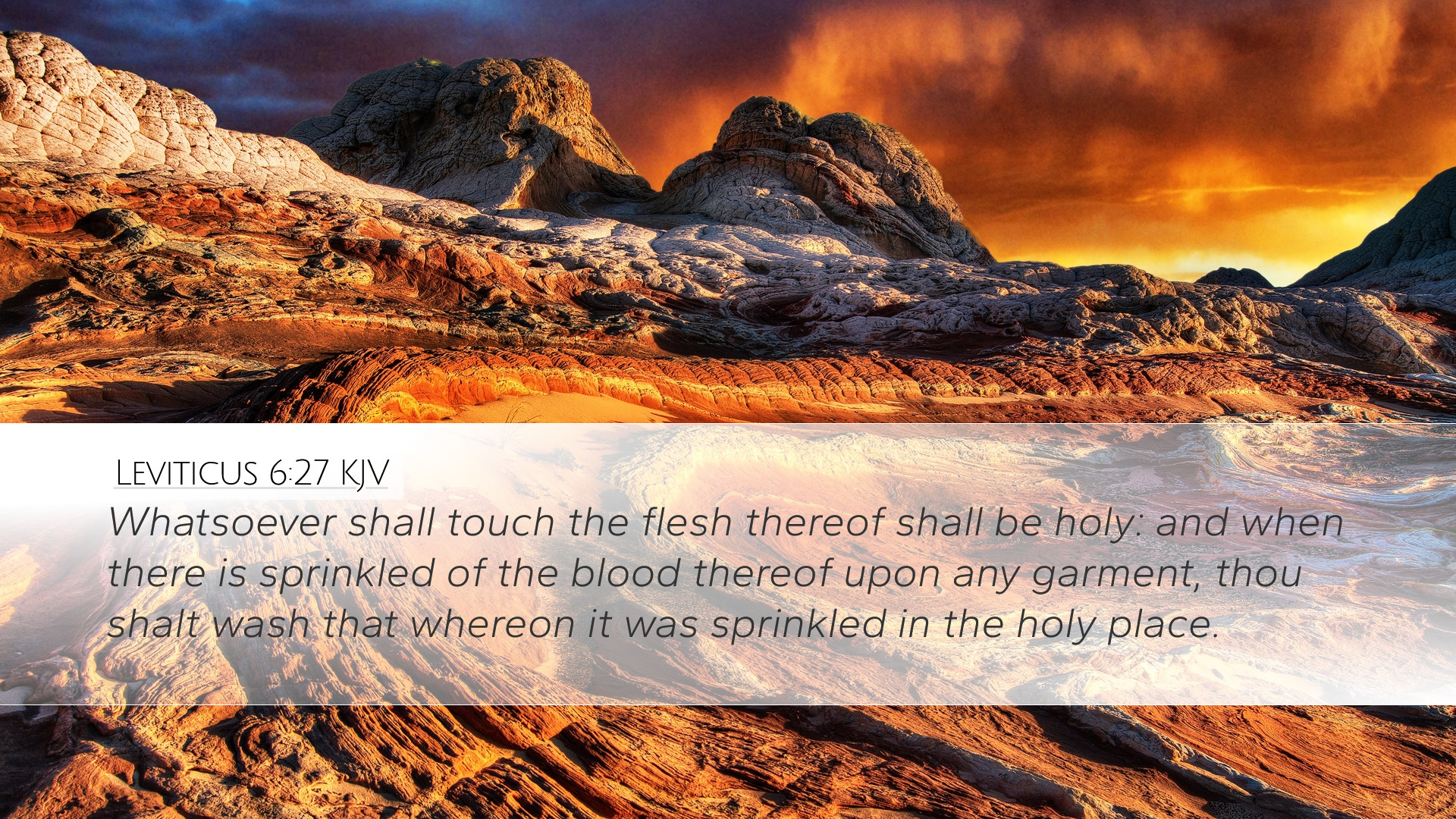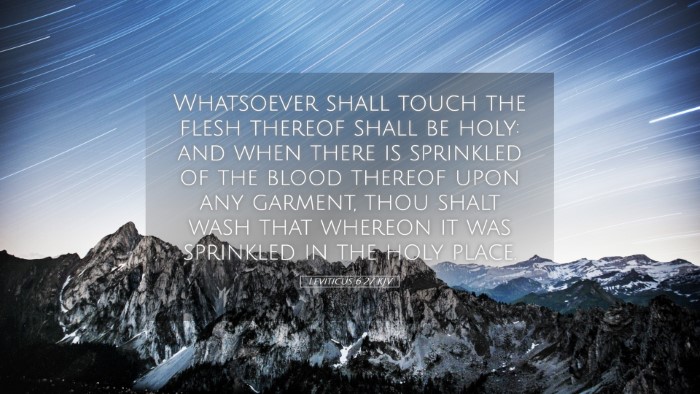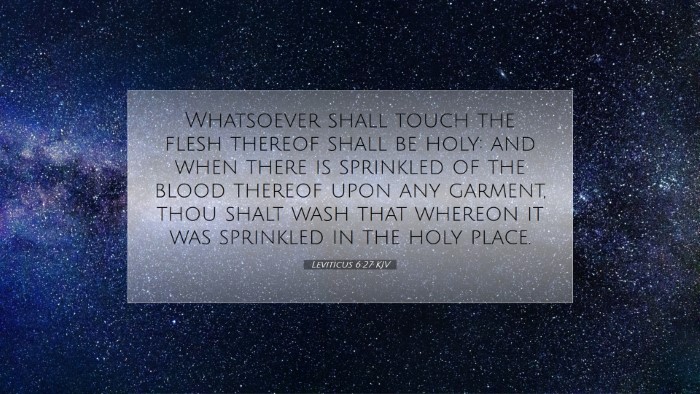Commentary on Leviticus 6:27
Verse Reference: Leviticus 6:27
“And whatsoever shall touch the flesh thereof shall be holy: and when there is sprinkled of the blood thereof upon any garment, thou shalt wash that whereon it was sprinkled in a holy place.”
Contextual Overview
The Book of Leviticus details the laws and regulations given to the Israelites, particularly concerning sacrifices, worship, and holiness. Chapter 6 outlines the procedures for handling specific offerings, particularly the sin offering and the significance of the blood in atonement.
Historical and Theological Significance
This verse emphasizes the sanctity associated with offerings and the effects of blood, which symbolizes atonement. The ritual purity mandated by God signifies the holiness required by those who serve Him.
Insights from Matthew Henry
Matthew Henry explains that the act of touching the flesh of the sin offering as described in Leviticus 6:27 designates the contact as holy. This principle underlines the transformative power of holiness that emanates from God's ordained sacrifices. Henry notes that when the blood of the lamb was sprinkled, it imparted holiness to garments, emphasizing the necessity for cleanliness and purity among priests.
Insights from Albert Barnes
Albert Barnes reflects on the practical implications of this verse, particularly the need for ceremonial purity when engaging in sacrificial rites. He points out that when blood is sprinkled on a garment, it requires washing in a 'holy place,' indicating that the soil of garments from sacrificial blood does not diminish their inherent value but rather demands a response that preserves sacredness. Barnes highlights the importance of adhering to God’s instructions to ensure that nothing impure mingles with the sacred aspects of worship.
Insights from Adam Clarke
Adam Clarke provides an expositional view of the text, illuminating the spiritual symbolism of contact with the sacrificial offerings. He asserts that divine holiness is infectious; thus, anything that interacts with holy items or blood becomes sacred itself. Clarke elaborates on the concept of ritual cleanliness, describing the washing process, which serves as a reminder of the need for believers to maintain both external and internal purity before the Lord. This principle extends beyond ritual practices into the moral and spiritual dimensions of worship.
Practical Applications
For pastors, students, theologians, and scholars, Leviticus 6:27 serves as a poignant reminder of the holiness of God and our response to that holiness. The following applications can be derived from the text:
- Understanding Holiness: Recognizing that holiness is not just a state but a dynamic interaction that affects our lives and the lives of others.
- Emphasizing Ritual Purity: The importance of maintaining both physical and spiritual cleanliness in our worship practices.
- The Power of Christ’s Blood: Drawing parallels to the New Testament, we understand that Christ’s sacrifice cleanses and sanctifies, making us holy before God.
Theological Implications
The implications of Leviticus 6:27 extend beyond ritualistic observance into a deeper understanding of God's covenant relationship with His people. It invites reflection on how our lives must continually reflect the holiness of God, evolving our theological discourse in understanding sin, sacrifice, and redemption.
Conclusion
In summary, Leviticus 6:27 provides a powerful insight into the importance of holiness in sacrificial practices, which is equally applicable to the Christian faith. By examining the historical, theological, and practical aspects of this verse through the lenses of various commentators, we find a richer, more profound understanding of Christ's redemptive work and our call to holiness. The instruction to wash and maintain ceremonial purity in the presence of God underscores the reverence required in our spiritual practices and the transformative nature of divine holiness.


